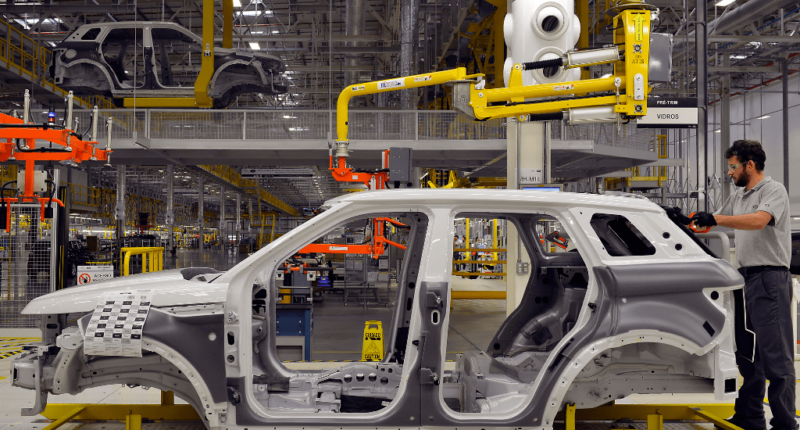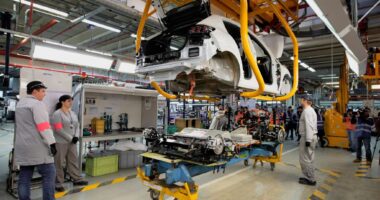On-going supply chain issues has been blamed for total UK car production falling by more than a third in the first quarter of 2022.
New figures released by the Society of Motor Manufacturers’ and Traders (SMMT) shows 99,211 fewer vehicles were assembled at British plants between January and March compared to the same period last year.
Production remains constrained by the on-going semiconductor shortage and as a result 207,347 new cars were built during the first three months of this year – down from 306,558 in the COVID-affected first quarter of 2021.
Last month alone, output nosedived by 33.4% to take overall volumes for the month of March to 76,900. Orders from oversea markets has also had a negative impact, the SMMT said, with these down 41.4%.
Despite this, seven in 10 cars (72.5%) made in the UK last month were built for export, with the EU taking the majority (67.0%), followed by the US (8.2%) and China (6.6%). Production for the domestic market, meanwhile, increased modestly by 4.3%, equivalent to 864 additional units.
Over the course of the first quarter, outputs for both export and the UK domestic markets fell by -35.0% and -20.3% respectively.
The SMMT’s Chief Executive believes that if the UK is to remain a competitive environment in which the latest and greenest vehicles can be made, relief on energy costs and low carbon energy are both essential.
“Two years after the start of the pandemic, automotive production is still suffering badly, with nearly 100,000 units lost in the first quarter,” said Mike Hawes.
“Recovery has not yet begun and, with a backdrop of an increasingly difficult economic environment, including escalating energy costs, urgent action is needed to protect the competitiveness of UK manufacturing.
“We want the UK to be at the forefront of the transition to electrified vehicles, not just as a market but as a manufacturer so action is urgently needed if we are to safeguard jobs and livelihoods,” he added.









